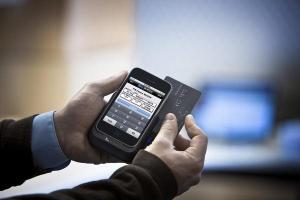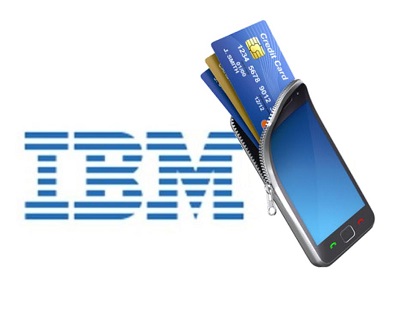Retailers cannot ignore mobile commerce any longer, as more consumers use their devices to shop online
Mobile commerce has become a powerful force throughout the world and may now be something that retailers can no longer ignore. Retail e-commerce has been on the rise for some time, and more consumers are beginning to use their mobile devices to shop online and purchase products. Numerous merchants have reported a significant rise in their mobile traffic over recent years, with spikes in this traffic occurring between November and December, as consumers do their holiday shopping.
Many consumers are expected to use their mobile devices to shop for products during the holiday season
According to a recent report from eMarketer, retail e-commerce is expected to see a surge during this year’s holiday season. The report estimates that online sales will reach $79.4 billion this year, an increase of more than 13% from what was recorded in 2014’s holiday season. Mobile commerce is expected to play a role in this growth in sales, as more consumers will be using their smartphones and tablets to make purchases. These devices also allow shoppers to avoid large crowds, which would otherwise slow their shopping experience.
Mobile commerce sales are expected to spike by 32% over what they were last year
 This year, eMarketer expects that mobile commerce sales will jump by 32%. Mobile devices now have larger screens, which improve the shopping experience. The convenience of mobile commerce has also proven to be an attractive concept for many consumers. Mobile shoppers are expected to use their devices to research products and find special deals, which can help them save money on their holiday purchases.
This year, eMarketer expects that mobile commerce sales will jump by 32%. Mobile devices now have larger screens, which improve the shopping experience. The convenience of mobile commerce has also proven to be an attractive concept for many consumers. Mobile shoppers are expected to use their devices to research products and find special deals, which can help them save money on their holiday purchases.
Consumers prefer to use mobile apps over web browsers when shopping from a mobile device
Consumers are becoming more accustomed to mobile commerce as a whole. A recent survey from PayPal found that 47% of those that have used their mobile devices to shop online prefer doing so in applications rather than through a web browser. Apps appear to streamline the mobile shopping experience, making it easier for consumers to find and purchase products that they may be interested in.
Vibes has now announced that it will be providing those capabilities to the Universal Behavior Exchange.
Mobile marketing firm, Vibes, has announced that it will be providing the Universal Behavior Exchange (UBX) from IBM with new capabilities for mobile wallet and advertising within that platform.
This should make it easier for marketers to be able to connect data throughout their various solutions.
The addition of the mobile wallet and marketing capabilities is meant to simplify and expand the ability of marketers to engage with their customers and understand their wants and expectations in the moment. Through the UBX at IBM, Vibes will make it possible for marketing firms to be able to boost their visibility into important data for their campaigns running over smartphones and tablets. This will make it possible to boost their conversion rates and enhance the experience for consumers throughout their shopping journey.
This improvement should be felt through everything from a mobile wallet to push notifications.
 By way of the UBX platform, the mobile marketing platform from Vibes has been integrated with a range of the different existing mobile commerce offerings from IBM. This will make it possible for marketers to benefit from the following:
By way of the UBX platform, the mobile marketing platform from Vibes has been integrated with a range of the different existing mobile commerce offerings from IBM. This will make it possible for marketers to benefit from the following:
• Customizing their mobile marketing campaigns at scale through the IBM Campaign feature in order to allow for targeted text messages, offers over mobile payments services, and others. This could improve the seamlessness of the experience for a much more natural shopping journey.
• Bring behavioral insights and data from e-commerce and m-commerce websites together through IBM Digital Analytics by way of all mobile marketing touch-points. This could provide a more complete understanding for considerably improved campaigns moving ahead.
• Take advantage of the IBM Marketing Cloud in order to gain email insight for improved communication with customers by way of smartphones and tablets so that targeted mobile wallet offers (using Android Pay and Apple Wallet) will be able to be delivered through email Manage. This will also make it possible for IBM Engage Mobile to be used for sending push notifications based on the behavior, data, and business rules of consumers.
 This year, eMarketer expects that mobile commerce sales will jump by 32%. Mobile devices now have larger screens, which improve the shopping experience. The convenience of mobile commerce has also proven to be an attractive concept for many consumers. Mobile shoppers are expected to use their devices to research products and find special deals, which can help them save money on their holiday purchases.
This year, eMarketer expects that mobile commerce sales will jump by 32%. Mobile devices now have larger screens, which improve the shopping experience. The convenience of mobile commerce has also proven to be an attractive concept for many consumers. Mobile shoppers are expected to use their devices to research products and find special deals, which can help them save money on their holiday purchases.
 By way of the UBX platform, the
By way of the UBX platform, the 